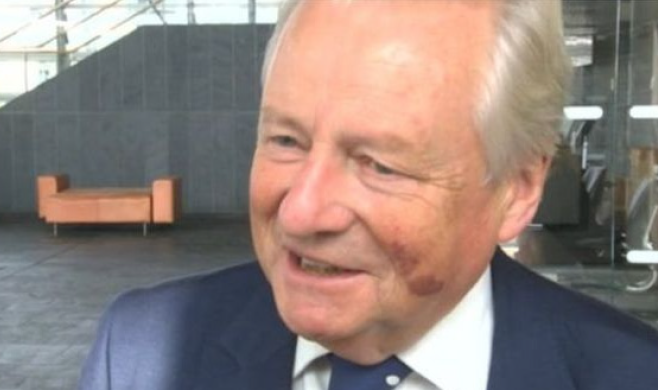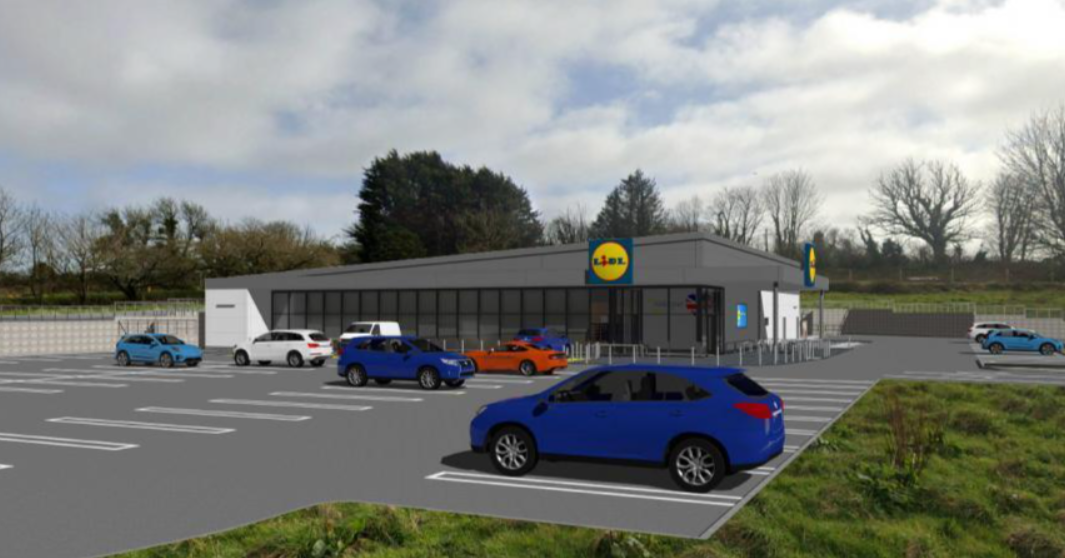Politics
Dafydd Elis Thomas quits Plaid Cymru

 PLAID CYMRU’S status as the official opposition to Labour in the Senedd was cast into uncertainty last Friday (Oct 14) after one of their most senior figures left the party less than six months after fighting an election as a Plaid AM.
PLAID CYMRU’S status as the official opposition to Labour in the Senedd was cast into uncertainty last Friday (Oct 14) after one of their most senior figures left the party less than six months after fighting an election as a Plaid AM.
Dafydd Elis Thomas, who has represented Plaid Cymru for 18 years at Westminster, 17 years in the Senedd, and four years in the House of Lords, informed his local party that he would subsequently sit as an independent in the Welsh Assembly. He is the second AM to leave their party group this year, following the prolonged saga of UKIP’s Nathan Gill.
Sources close to Lord Elis Thomas have suggested that he felt Plaid Cymru should have been more supportive of the Welsh Labour Government. Following his departure, the two parties agreed a draft budget which included £119m allocated to Plaid Cymru priority areas of spending.
Speaking to the BBC, Lord Elis Thomas said: “It was clear to me that the Plaid group in the National Assembly was not willing to seriously participate in government and to give Wales a stable government, particularly after the decisions taken in Wales and elsewhere about our future relationship with the European Union.
“There is a serious constitutional challenge now and we might well lose powers from Wales,” he added.
“I think all pro-devolutionists should be working together to ensure that doesn’t happen.”
The peer’s relationship with Leanne Wood, who defeated him in a 2012 leadership election, was also thought to have contributed to his decision. As Presiding Officer, Lord Elis Thomas ordered Ms Wood to leave the Chamber after the republican referred to Queen Elizabeth as ‘Mrs Windsor’. Ms Wood sacked Lord Elis Thomas from the front bench in 2014 after he publicly criticised the party’s stance on UKIP.
Plaid Cymru lost no time in calling for a by-election following Lord Elis-Thomas’ announcement. A party statement released shortly afterwards said: “Plaid Cymru will begin the process of selecting a new candidate in Dwyfor Meirionnydd following Dafydd Elis-Thomas’s decision to leave the Plaid Cymru Assembly group.
“Constituents, who Dafydd Elis- Thomas misled in the recent Assembly election, will expect a by-election to be held at the earliest convenience.”
A petition was also launched calling for him to resign and call a by-election. It claimed that Lord Elis-Thomas was ‘elected through the hard work and financial resources of Plaid Cymru’s local activists.
‘The electorate of Dwyfor Meirionnydd deserve the opportunity to voice their opinions on this through the ballot box’, the petition added. This was supported on social media by Dwyfor Merionnydd MP Liz Saville Roberts.
However, as UKIP found out, Lord Elis-Thomas is under no obligation to resign, and has said that he will be better-placed to serve his constituency now that he no longer has to toe the party line. Given that toeing the party line was hardly one of his strong points, it would be fair to suggest that Plaid Cymru’s Senedd group will not receive a great deal of support from their former colleague.
The question which has been asked by several political commentators is which party now holds the role of official opposition in Wales. Plaid Cymru and the Conservatives now have 11 seats apiece – compared to six UKIP AMs, two independents, and one Lib Dem.
The answer is that no one seems quite sure. A Plaid Cymru source suggested that, while the parties had the same number of seats, the Party of Wales had registered more votes. However, it is unclear whether this will make any difference.
The Welsh Conservatives, on the other hand, made light of the official opposition title they proudly held during the Fourth Assembly, with one source memorably describing it as ‘bald men fighting over a comb’.
However, they suggested that this would be a fight the party would be willing to participate in, by calling for the title to be shared or dropped.
Given that joint official opposition in a legislature which contains three major parties and UKIP is hardly a title worthy of boasting, it could well be the case that both parties refer to themselves as the opposition, while the official aspect is quietly dropped.
Of far more importance to the day-to-day running of the Assembly will be the changes made to committee place and chair allocations, but at the time of going to press, this had not been resolved.
Community
Future of Milford Haven Library set to be secured by agreement

A CALL to residents for a potential £3.35 annual contribution to help support a town library has been overwhelmingly supported, councillors heard.
In a submitted question to Cabinet Member for Residents’ Services Cllr Rhys Sinnett, heard at the December meeting of Pembrokeshire County Council, fellow Milford Haven councillor Cllr Alan Dennison asked: “I and many residents of Milford are deeply concerned about the drastic cut in funding for the Milford library, which has hindered its ability to function effectively, especially given its lack of a permanent location since its sale years ago.
“Many residents have voiced their dissatisfaction with the request for over £3 weekly contributions to keep the library operational for another year, particularly while we see ongoing financial support for Haverfordwest.
“As a councillor for Milford and responsible cabinet member, you are aware of the PCC’s plans for the Haverfordwest library.
“Are you not concerned, as your constituents are, about the insufficient investment in our town’s library, especially in light of the seemingly unlimited funds directed towards Haverfordwest and can you identify what plans are in place to support Milford library going forward?”
Cllr Sinnett responded by saying the county council was working in partnership with the town council and Milford Haven Port Authority to consider options to improve the financial sustainability of the library.
Milford Haven’s library has been based at the town’s Cedar Court for the past 16 years, with its lease running up to 2034, members heard.
He said the cost referred to were a town council survey of residents to see if they were willing to contribute, through the town council part of the overall council tax bill, towards the library, at a cost of £3.35 per year, with more than 89 per cent of responses favourable.
He said Haverfordwest was “not immune” from any potential cuts and cost savings, but funding had been secured to address antisocial behaviour at that library.
Business
Community council objections to Tenby Lidl store scheme

PLANS for a new store on the edge of Tenby by retail giant Lidl, which has seen objections from the local community council, are likely to be heard next year.
In an application recently lodged with Pembrokeshire County Council back in October, Lidl GB Ltd, through agent CarneySweeney, seeks permission for a new 1,969sqm store on land at Park House Court, Narberth Road, New Hedges/Tenby, to the north of the Park Court Nursing Home.
The proposals for the latest specification Lidl store, which includes 103 parking spaces, would create 40 jobs, the applicants say.
The application follows draft proposals submitted in 2024 and public consultations on the scheme, with a leaflet drop delivered to 8,605 local properties; an information website, with online feedback form; and a public exhibition, held last December at the De Valence Pavillion in Tenby, with a follow-up community event held at New Hedges Village Hall, close to the site, publicised through an additional postcard issued to 2,060 properties.

Some 1,365 responses have been received, with 89 per cent of respondents expressing support for the proposals, the applicants say.
A supporting statement says: “Lidl is now exceptionally well established in the UK with the Company operating c.980 stores from sites and premises both within and outside town centres. Its market share continues to increase substantially, and the company is expanding its store network considerably. The UK operational model is based firmly on the success of Lidl’s operations abroad with more than 10,800 stores trading across Europe.
It adds: “The granting of planning permission for the erection of a new Lidl food store would increase the retail offer and boost the local economy. The new Lidl food store would create up to 40 employment opportunities for people of all ages and backgrounds, providing opportunities for training and career development. This in turn will create an upward spiral of economic benefits.”
Local community council St Mary Out Liberty Community Council has formally objected to the scheme, saying that, while it supports the scheme for a Lidl store in principle, recognising “the economic benefits a new retail store could bring,” it says the proposed location “is unsuitable, conflicts with planning policy, and cannot be supported in its current form”.
Its objections add: “The A478 is heavily congested in peak tourist months. A supermarket would worsen congestion, increase turning movements, and heighten risks to pedestrians, cyclists, and emergency access.”
It also raises concerns on the potential impact through “noise, lighting, traffic disturbance, and loss of quiet amenity” on a neighbouring residential care home.
An initial assessment by Pembrokeshire County Council, highlighted concerns about the visual impact, with the authority’s landscape officer commenting that the store would introduce “an intense urban function into an otherwise rural context”.
The report added: “It is not considered to be compatible with the character of the site and the area within which it is located; and furthermore, will lead to a harmful visual impact on the setting of the National Park.”
The application will be considered by county planners at a later date.
Local Government
£4m Plaid Cymru deal boost to Pembrokeshire council coffers

PEMBROKESHIRE’S financial situation for next year is some £4m better off after a higher settlement from the Welsh Government, but the council still faces difficult decisions, councillors heard.
While council tax makes up a proportion of the council’s annual revenue, a crucial area of funding is the Aggregate External Finance (AEF) rate from Welsh Government.
Pembrokeshire was to receive a 2.3 per cent increase on its settlement, a total of £244,318,000, amounting to an extra £5,493,000, placing it at joint 13th of the 22 local authorities in Wales.
Now, following a Welsh Government and Plaid Cymru agreement, local authorities including Pembrokeshire have received a better financial settlement.
Speaking at the December meeting of Pembrokeshire County Council, while presenting a report on the outline draft medium term financial plan (MTFP) 2026-27 to 2028-29, Cabinet member for finance Cllr Alistair Cameron said the recent rise in the financial settlement from the Welsh Government had decreased the expected funding gap for the next financial year for the county from £17.7m to £13.6m, but stressed: “There are still increased pressures we are going to have to face.”
His report for members outlined some of the pressures faced by the council in setting its budget for the next financial year.
“Based on the revised projected funding gap of £13.6m, it is evident that major budget savings as well as a significant Council Tax increase will be required in order to deliver a balanced budget for 2026-27. The lower the Band D Council Tax increase, the higher the budget savings requirement will be, with the consequential adverse impact on the provision of Council services and on the medium-term financial sustainability of the council.”
His report also noted the decision in October by members to cut the council tax premium on second homes from 150 to 125 per cent, which on its own has increased the funding gap for 2026-27 by £1.3m.
The report, listing the many pressures and potential savings, said that where possible, discretionary fees and charges income has been budgeted to increase by 3.8 per cent, with any increases above this level included as part of the budget savings options presented.
The report for members, prior to the revised settlement from Welsh Government, gave council tax increase options ranging from five to 10 per cent with 7.5 per cent highlighted as the most favoured option, the 7.5 rate equating to a £2.38 a week increase for the average Band D property; each one per cent increase or decrease in council tax being worth £0.908m for council coffers.
Leader of the Conservative group on the council Cllr Di Clements made a plea to the leader, calling on the council to use the extra money from Welsh Government to “contribute to making this authority financially sustainable in the long term,” adding: “We know it’s tough out there for our council tax-payers, let’s hopefully give them a break this year.”
Independent Group leader Cllr Huw Murphy said the better settlement was “a huge sigh of relief” for the council, adding: “The budget negotiations still won’t be any easier because we’ve had this pot of money; [but] we have to applaud Plaid Cymru on this.”
A long string of recommendations essentially noting the report, but including the fees and charges increase, was moved by Cllr Cameron, seconded by Leader Cllr Jon Harvey, backed by members by 46 votes to one, with three abstentions.
The actual setting of the budget and related council tax level along with any potential savings and cuts, will be decided at a later date, with a public consultation running to January 4, followed by committee scrutiny ahead of Cabinet considering a revised draft budget on February 9, before it is recommended to full council on February 20.
-

 Crime2 days ago
Crime2 days agoMilford Haven man jailed after drunken attack on partner and police officers
-

 News5 days ago
News5 days agoDyfed-Powys Police launch major investigation after triple fatal crash
-

 Crime2 days ago
Crime2 days agoTeenager charged following rape allegation at Saundersfoot nightclub
-

 Crime3 days ago
Crime3 days agoMan charged with months of coercive control and assaults
-

 Crime4 days ago
Crime4 days agoMan sent to Crown Court over historic indecent assault allegations
-

 Crime6 days ago
Crime6 days agoMan spared jail after baseball bat incident in Milford Haven
-

 Crime4 days ago
Crime4 days agoMilford Haven man admits multiple offences after A477 incident
-

 Crime3 days ago
Crime3 days agoWoman ‘terrified in own home’ after ex breaches court order




















